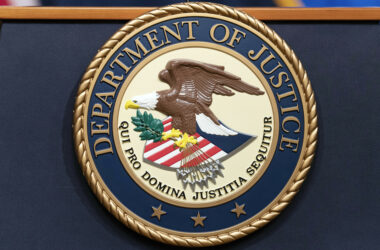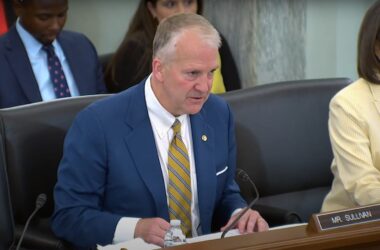Alaska Attorney General Treg Taylor joined a bipartisan coalition of 49 attorneys general to urge the Federal Trade Commission to adopt strict regulations prohibiting impersonation scams. Americans are targeted each year by imposters who claim to be government officials, love interests, or even grandparents. Currently, there isn’t an FTC rule specifically related to impersonation scams, although scammers who engage in fraudulent acts are subject to state criminal and civil penalties. The Alaska Department of Law and other state attorneys general receive countless complaints each year about impersonation scams, which can take various forms.
Attorney General Taylor said:
“Con artists will do just about anything to separate consumers from their hard-earned money, and that includes lying about who they are and why they’ve contacted you. Establishment of a federal rule prohibiting these scams will give us another tool to fight these scams and protect the public.”
Attorneys general are battling impersonation scams, since they see first-hand the pervasive problem these acts create for consumers, small businesses, and charities in their states.
Impersonation scams take on multiple forms:
- Impersonation of government entities: Fraudsters claim to be from or affiliated with a government agency to persuade victims of the urgency to provide payment to obtain licensing or certificates.
- Business impersonation: These are scams in which fraudsters claim to be working directly for an actual business or as a third party endorsed by the business. Common examples include tech scams in which the imposters claim they are contacting the victim on behalf of companies such as Microsoft or Apple to assist with a ransomware or technology issue.
- Person-to-person deceptions: Grandparent scams, romance scams and others use personal information to make a connection with victims. Whether claiming a grandchild is in urgent need of money or creating a fake profile to gain the trust of someone on a social media or dating site, these impersonation scams account for thousands of complaints to attorneys general each year.
Though the methods may vary, impersonation scams cause injury to consumers who lose money, drain resources from regulators tasked with protecting the public, and cause confusion and loss of trust in government agencies and services.
The signed letter is calling for a national rule that outlaws commonly experienced scams, which would assist attorneys general and partners in reducing consumer harm, maximizing consumer benefits, and holding bad actors to account.
The letter calls for a robust national standard in outlawing impersonation scams, which should include:
- Deter bad actors and reduce consumer harm.
- Provide needed clarity on what conduct constitutes impersonation, since government and business impersonation scams can range from overt pretense to misleading subtlety.
- Deprive bad actors of the excuse that they were allegedly not aware their activities were illegal in some jurisdictions as opposed to others.
- Provide more opportunities for the states to collaborate with the FTC on multistate enforcement actions against imposter scammers.
- Allow states to enforce their own standards, free of any preemption by a federal rule.
Click here for more information.






